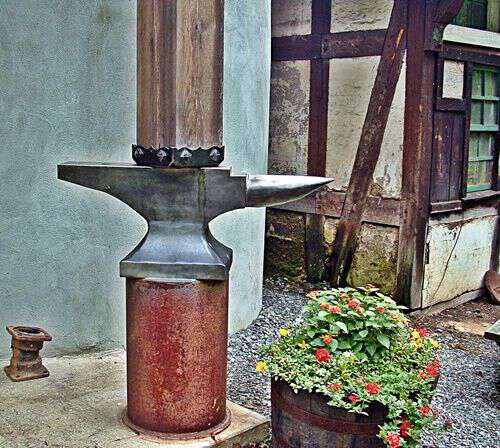
In my latest video I’m talking about Appalachian words and phrases that start with the letter D.
Out of the ones I mention I think dasst for dare is the one I’d like to bring back. Over the years I’ve heard folks use it in a teasing or humorous manner, but only rarely.
Hope you’ll leave a comment and let me know which ones you are familiar with!
Subscribe for FREE and get a daily dose of Appalachia in your inbox


I have heard the term “dassn’t” only from one person in my life, born (1926) and raised in Philadelphia, never once visited Appalachia, never knew anyone from there that I ever knew about. So I never knew it was an Appalachian word. I always assumed it was an archaic word she picked up from reading, or from a movie.
“Dasst” (or dast) is short for “darest,” which is archaic for “dare.” It usually was used with “not,” as in “I dasst (darest, dare) not tell Mama about…”
I once lived in a large house in San Diego with eight other senior Petty Officers. We called it the “Snake Ranch.” One unique feature of the place was an extremely large anvil used as a coffee table in front of a couch. No one knew who put it there, when it was put there, why it was put there, where it came from. It was there when I moved in and there when I moved out.
Dadgummit, I must be old because I have heard practically all of them.
Dark Hollow “holler” Road.
This immediately made me remember part of something Mama used to read or say (can’t remember which) when we were little. “Dob it with moss and stop it with clay and then you can carry your riddlefull away.
I’ll have to try to look it up!
I’m not crazy about anything in particular, I’m just plain crazy!
I remember when Harold was skidding out some firewood with our old white mare Kate. He walked her right into a big yellow jacket nest. Of course Kate started dancing! Then Harold joined. He tried to let go of the reins and let her run. But what with fighting the little demons off himself he got tangled in the reins and chain and couldn’t let her loose. I couldn’t help because I was rolling around on the ground laughing.
Dead to the world, meaning sound asleep, is pretty common everywhere.
I have ordered the new version the Dictionary of Smoky Mountain English. It is expensive but not near what you’d have to pay for the one you have. I hope it will be as good as yours.
With your permission, I would like to credit Ted Thompson of Charlotte, NC with the exceptional fabrication of the anvil that makes up the base of a column at the entrance to the “new” blacksmith shop at the Folk School. He made it about ten years ago during blacksmith work-week. It is just one of many treasures provided to the School each year by the group under the direction of Paul Garrett, resident blacksmith, JCCFS.
Rooney-thank you for sharing that! The anvil is truly amazing 🙂
Good Morning Tipper…Your Appalachian words and phrases again evoked old and pleasant memories. Not familiar with “douncy,” but certainly with others, in one form or another. Dasst seemed to be used as “lest” at times, as in “I got my eyes on you, dasst you get any idea of plucking your fingers in that coolin’ pie.” What in the dagnation were you thinking, letting them goats get in granny’s garden patch! “Dead” was used to describe accuracy. as “he hit that doggone hog dead. right ‘tween the eyes. I remember how we would sometimes make up our own words and phrases to further confuse those who didn’t understand our talk, and how it was always so pleasant going back into the country after living near the city for a while. As we would sit around talking, it seemed like a warm familiarity settled over us with the old and familiar way of talking, much of it very foreign to city ears.
Let’s see, I know “Dad+, dangnation, daub”, “day and time” and “dead as four o’ click.” Sure I’ve heard “dark of the moon” spoken of but have no particular memory. I’m intrigued by that “dark corner/cove” one. I’ve never heard it said but can think of dark corners I have seen. I have never seen it as a placename on topographic maps but I could believe it is there somewhere.
The idea of a “deadman” is widely used to meet the need for support in areas where there isn’t any handy. A deadman in fencing is a log or rock buried with an attached stay wire to a post.
Yep..I have heard “dagnation”…….a long time ago……
Dagnation is somethong my dad ust to say I guess similar to the addition of nation to tarnation. My gramma used to say you dassent I don’t remember her saying dass in the positive though, just when she was telling usbyou better not